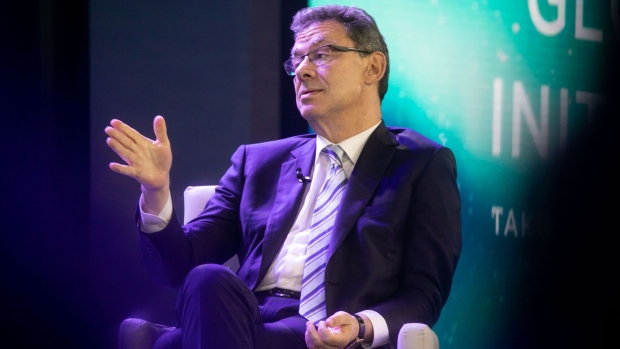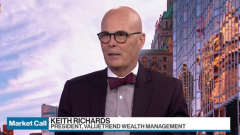Oct 16, 2023
Pfizer’s $9 Billion Covid Outlook Cut Shows Depth of Decline
, Bloomberg News

(Bloomberg) -- Pfizer Inc.’s announcement that it will cut $9 billion from annual sales guidance due to declining demand for Covid shots and pills was met with relief by investors eager to understand the company’s post-pandemic growth strategy.
The shares closed up 3.6% Monday, the first trading day after Pfizer slashed its forecast for 2023 adjusted per-share earnings by more than half. The guidance cut was Pfizer’s biggest in at least a decade, but some analysts saw the move as an opportunity to reset investor expectations, including Jefferies LLC analyst Akash Tewari, who raised his rating to buy from hold. The stock is still down 44% from its December 2021 high.
The last few days have been a reckoning for Pfizer, the drugmaker that gained most from the pandemic and has seen the biggest blow from its decline. For months, executives pushed off guidance changes, telling analysts and investors they needed more data to calculate how its Covid franchise would fare. That only put more pressure on Chief Executive Officer Albert Bourla and new Chief Financial Officer Dave Denton, while prolonging market expectations that the company would somehow pull off something close to its forecasts.
Pfizer cut its annual sales and profit expectations Friday after agreeing with the US government to take back its inventory of Paxlovid. The government said it struck the deal in part to ensure none of its inventory expires. While that initially disappointed investors, it removes a roadblock to selling the shots into the private US health system where the drugmaker is likely to be able to charge more for the product.
On Monday, Pfizer reduced its 2023 forecast for sales of its Paxlovid antiviral to $1 billion from $8 billion. The US government has been the major customer for the pills, purchasing some 24 million treatment courses for about $530 each since the drug was authorized in December 2021. Those doses have been available to the public for free.
Read More: All About Paxlovid and Other Covid-19 Treatments
Close to 13 million doses were administered through September, according to data from Symphony Health Systems. That left about another 11 million to be administered before Pfizer could sell to private buyers. Government data also indicated its stockpile of the pills was about that size. In the meantime, the company would have had no US revenue from Paxlovid.
“Pfizer would have needed over a year to burn through its government stockpile,” Bloomberg Intelligence’s Sam Fazeli said in an email.
The move to reclaim the inventory takes some of the guesswork out of the company’s finances. Pfizer’s Friday earnings cut was “unprecedented” for a company of its size, Fazeli said, though Covid has been hard to predict.
Robyn Karnauskas, an analyst at Truist Securities, said that in the longer term, sales of Paxlovid could improve now that the inventory is no longer being held by the US. Paxlovid courses could fetch up to $700 on the retail market, according to Morningstar analyst Damien Conover.
Reassuring Investors
The company also lowered its 2023 forecast for sales of Covid shots by $2 billion to $11.5 billion on Monday. Management had said as recently as last month that it expected 24% of the US population to get Covid boosters, which was higher than the level of uptake with the last booster. On Monday, it said just 17% of Americans are expected to get those shots.
For its part, rival Covid shotmaker Moderna Inc. reaffirmed its guidance of between $6 billion to $8 billion in sales from its Covid-19 vaccine for 2023. The company said it will have better visibility about the total size of the US market after seeing trends through October.
Read More: Paxlovid Study Shows Effectiveness Against Covid Has Declined
Bourla took over at Pfizer in 2019 and led the company through the pandemic, a period of explosive growth. Total company sales hit $100 billion in 2022 thanks to its Covid shot and pill, double where sales were when he started.
But the speed at which demand for those products would fall off consistently caught management off guard. Last quarter, after sales of its Covid pill missed analysts’ expectations by some $700 million, the company shaved $1 billion off of the top end of its annual sales forecast, yet kept its adjusted earnings outlook of $3.25 to $3.45 a share intact until Friday’s cut. The company is now forecasting $1.45 a share to $1.65 a share.
On Monday’s call, the CEO offered reassurance.
“A lot of the uncertainties that were surrounding the Covid business are resolved or about to be resolved soon,” Bourla said. “Final elements will become clear and everybody could predict the business with reasonably safety for 2024 and years to come.”
--With assistance from Brad Skillman and Gerry Smith.
(Updates with closing shares in second paragraph, inventory context in sixth.)
©2023 Bloomberg L.P.


